Microbiology
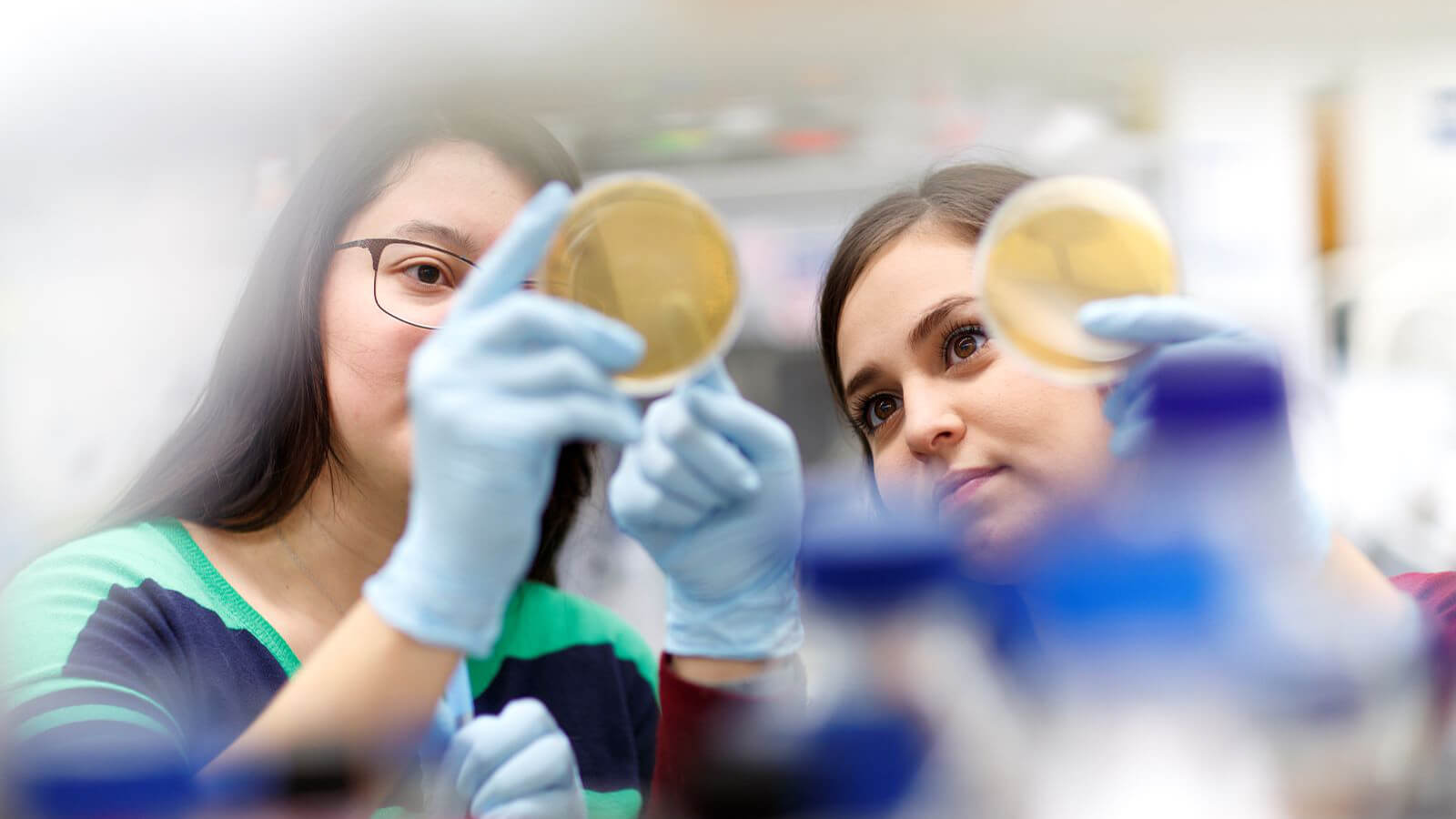
The Nebraska Difference
Flexible cross disciplinary major
Enroll in microbiology courses instructed across departments
1-to-1 Support
Work with advisors and other professionals in each college
Undergraduate Research Opportunities
Hands on learning in cutting edge research laboratories
Two Pathways For Microbiology
College of Agricultural Sciences and Natural Resources
Pathway prepares students for tomorrow’s greatest challenges around food, energy, water, health and societal systems. Resources are specifically dedicated to helping students reach their career goals with a guaranteed job offer program, experiential learning opportunities, and personal and professional development through the Student Success and Career Hubs in the college.
College of Arts and Sciences
Pathway provides a flexible degree structure for students to become academically well-rounded by combining in-depth scientific study with courses in the humanities and social and behavioral sciences. Career coaching ensures students have opportunities for high quality advanced degrees or related employment right after graduation.
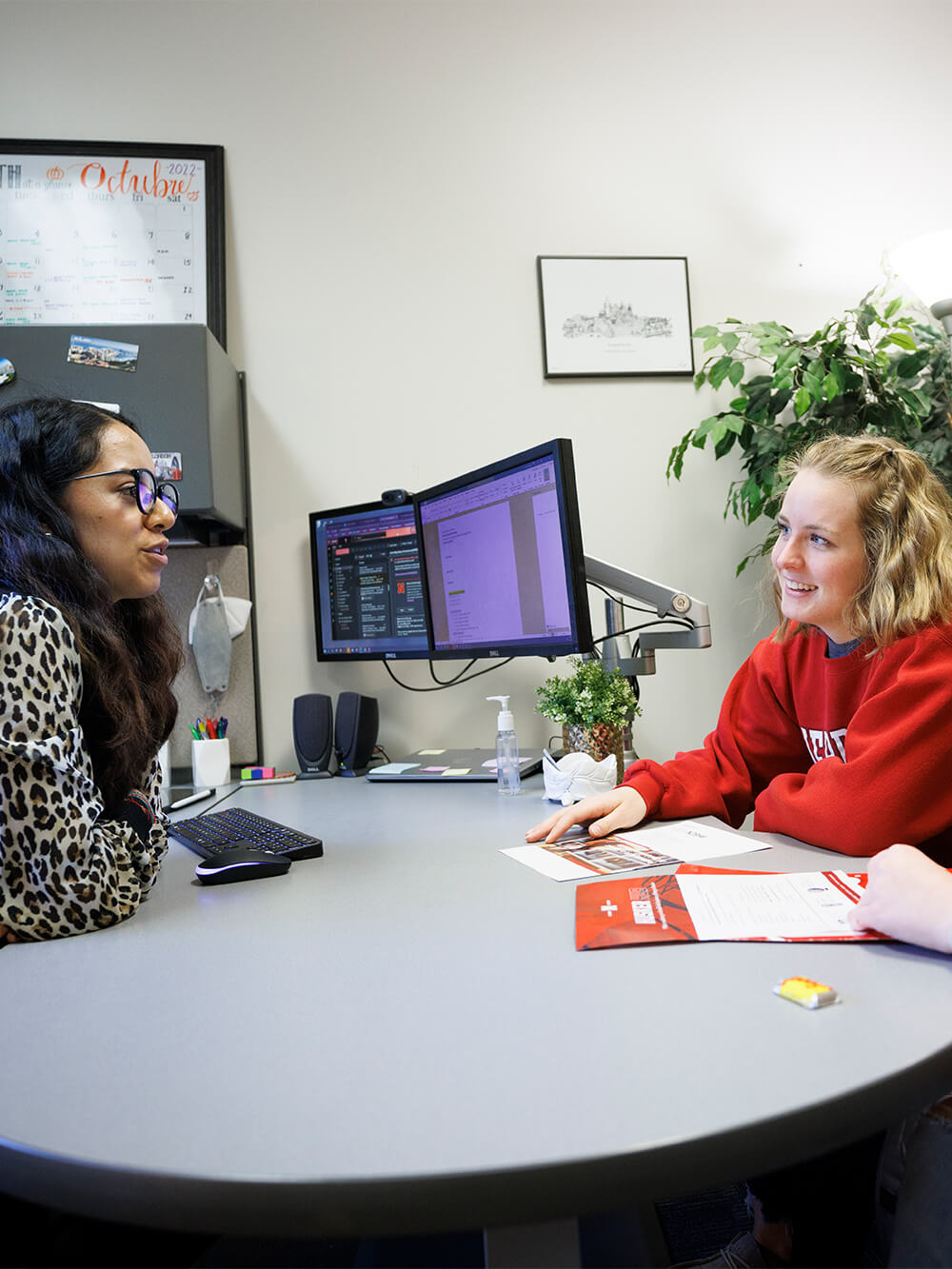
Program Features
Microbiology Achievement through Research and Valuable Experiential Learning (MARVEL)
MARVEL provides access to engaging career and research-oriented workshops (e.g. Finding Your Network, Communicating Your Science, The Mentor/Mentee Relationship) as well as participation in the Annual Microbiology Research Symposium each fall. Through the MARVEL program, you will also build community with other microbiology-affiliated students, faculty and staff on campus.
Microbiology Club
Engage with other students, faculty and staff outside of the classroom for industry and facility tours. Take advantage of opportunities to put your knowledge and acquired skills to work designing microbial artwork during the annual Agar Art event and other microbiology related activities.
Learning Community
Experience the Lab: Forensic Science, Microbiology & Biochemistry is a Learning Community designed to connect first-year students who are interested in the molecular life sciences. Students live in Abel Hall, take introductory science courses together, visit local companies, join in hands-on lab training, participate in a research symposium and attend social events.
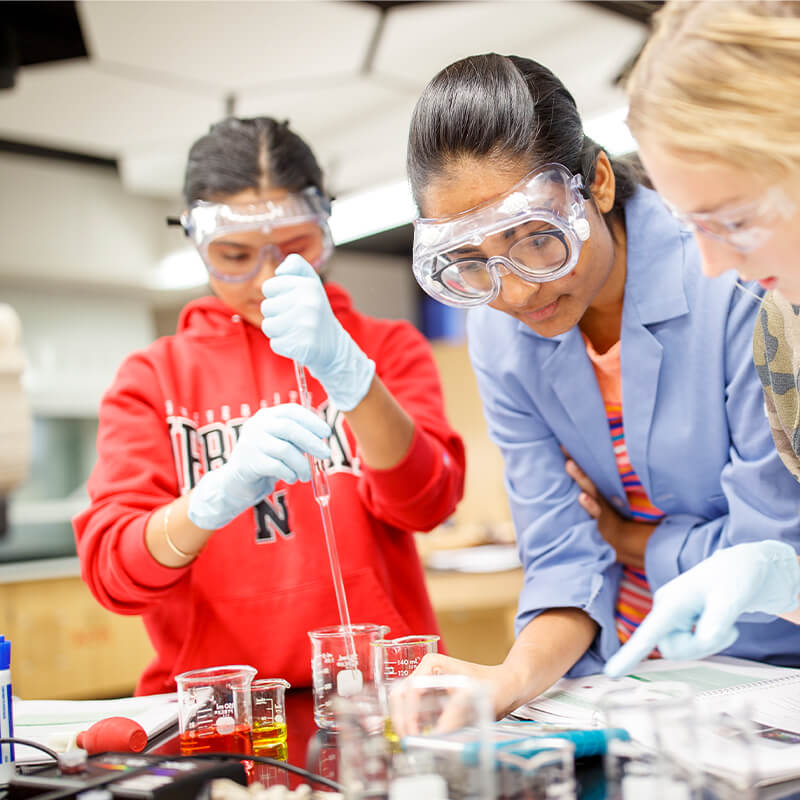
Notable Courses
Introduction to the Microbiology Major (MBIO 101)
Provides an overview of microbiology as a field of science, possible career paths and opportunities available to microbiology majors.
Microbial Diversity (MBIO 421)
Diversity of microbial cell composition, structure and function enabling movement, metabolism, symbiosis, and adaptation using bacterial, fungal, algal and viral examples.
Microbial Physiology (MBIO 440)
Molecular approaches to the study of prokaryotic cell structure and physiology, including growth, cell division, metabolism and alternative microbial lifestyles.
Immunology (MBIO 443)
Cellular and humoral mechanisms of immunity, immunoglobulins, antigen-antibody interactions, hypersensitivity, transplantation and tumor immunity and immune and autoimmune disorders.
Microbial Genetics & Genomics (MBIO 418)
Inheritance, exchange and regulation of genes in prokaryotic microorganisms: gene structure, function and transfer; DNA mutations, repair and genetic analysis; genome sequencing, microbial genome databases and global gene expression analysis.
Explore the 4-Year Plans
Huskers Do Big Things
Internships
- Associate management intern, Cargill
- Advanced research intern, Li-COR Biosciences
- Research and development summer intern, Estee Lauder Companies
- Undergraduate student researcher, Children’s Hospital and Medical Center
- Project manager assistant/engineering assistant, LI-COR Biosciences
Careers
- Clinical research associate, University of Nebraska Medical Center
- Process engineer, Novozymes, Inc.
- Science writer, LI-COR Biosciences
- Scientist I, Aerotek
- Plant research biologist, Midwest Research Inc.
Graduate Schools
- M.S., Bioinformatics, Northeastern University
- M.S., Global Health, Emory University
- Ph.D., Biomedical Sciences, University of California-San Diego
- Ph.D., Microbial Ecology, Stanford University
- M.D./Ph.D., University of Nebraska Medical Center College of Medicine
- Ph.D., Biochemistry and Molecular Biology, California Institute of Technology
Outside the Classroom
Depending on your major, interests and goals, you can choose to do research, work as an intern, study abroad, become a leader or serve your community. The university’s Experiential Learning requirement ensures you have at least one of these transformative learning experiences.
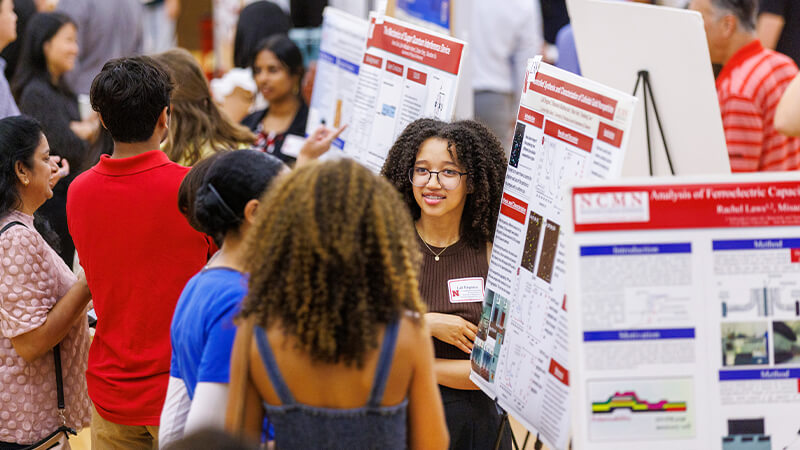
Work alongside a faculty member as a research assistant or design your own research project through the Undergraduate Creative Activities and Research Experience (UCARE) program.

Explore a wide variety of local, national and international internships. Connect with our career coaches to identify opportunities and document the skills and experience you gain on the job.
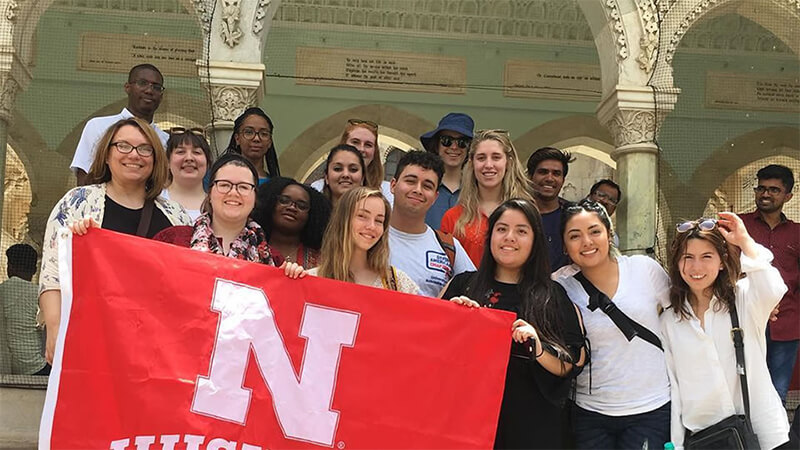
Join other students on a faculty-led program or connect with our Global Experiences Office to find an affiliate program in almost any location you can imagine.
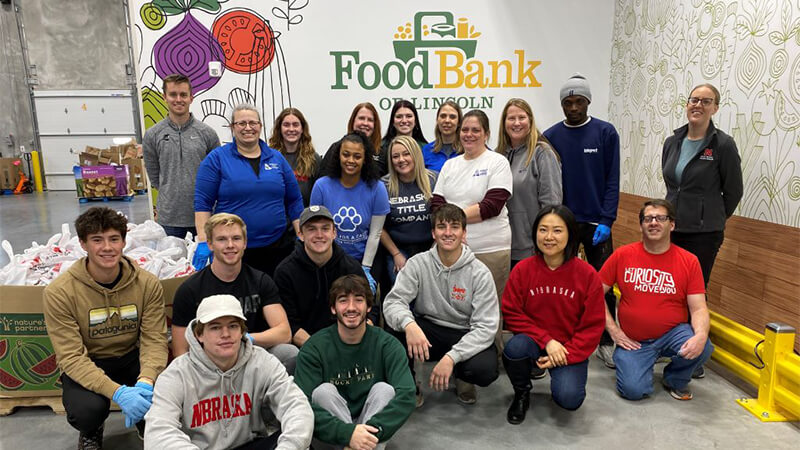
Get involved in one of the 540+ student organizations available at Nebraska. Meet students who share your interests, become a leader or serve the community.

Featured Faculty
Matthew Wiebe, Professor
Matthew Wiebe is a Professor in the School of Veterinary and Biomedical Sciences. Much of the Wiebe lab research focuses on the vaccinia virus, which is a member of the poxvirus family and is closely related to smallpox and monkeypox viruses. Wiebe attended the University of Nebraska at Omaha for his B.S. and earned his Ph.D. at the University of Nebraska Medical Center.
Academics & Experiential Learning
- Microbiology majors regularly engage in research or internships and many study abroad or get involved in service or leadership on campus and beyond.
Career Preparedness
- Professional Development MARVEL Workshops: mentor/mentee relationships, teamwork, finding your network and communicating your science
Community
- Join the Microbiology Club and connect with faculty, students, alumni and guest speakers.
- The university’s Microbiology Club is recognized as an American Society for Microbiology Chapter.
Have Questions? We're Here to Help
If you have questions about the Microbiology major or navigating the application process, contact us.
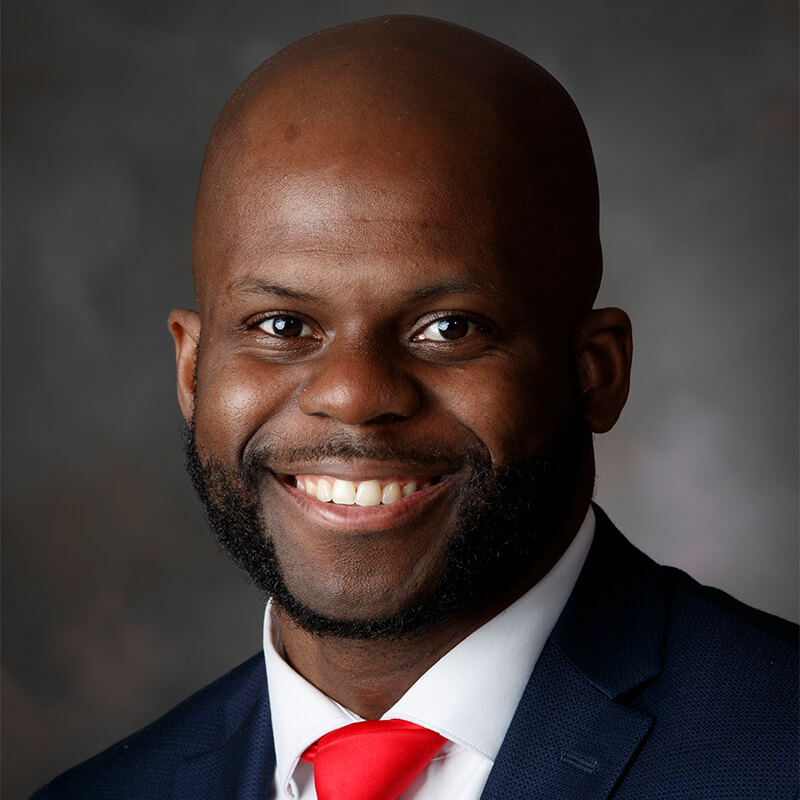
- Contact Name
- Nicholas Gordon
- Contact Title
- College of Arts and Sciences
- Phone
-
-

- Contact Name
- Sue Ellen Pegg
- Contact Title
- College of Agricultural Sciences and Natural Resources
- Phone
-
-